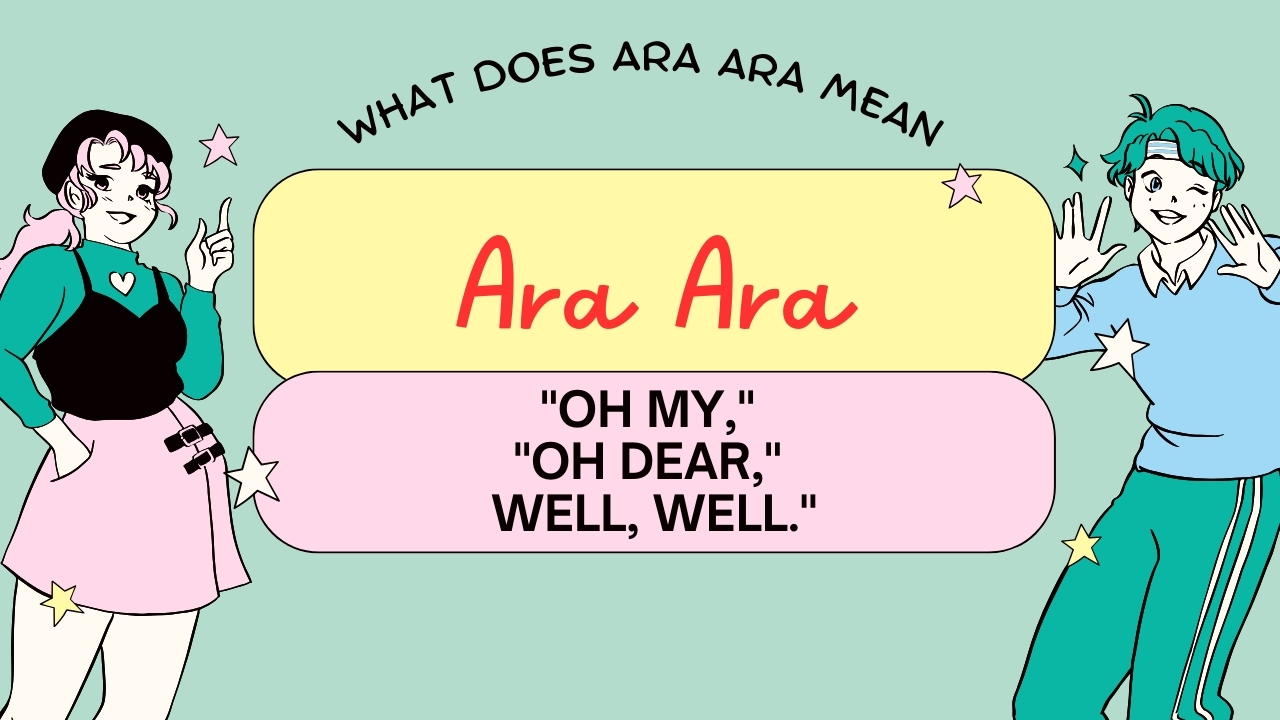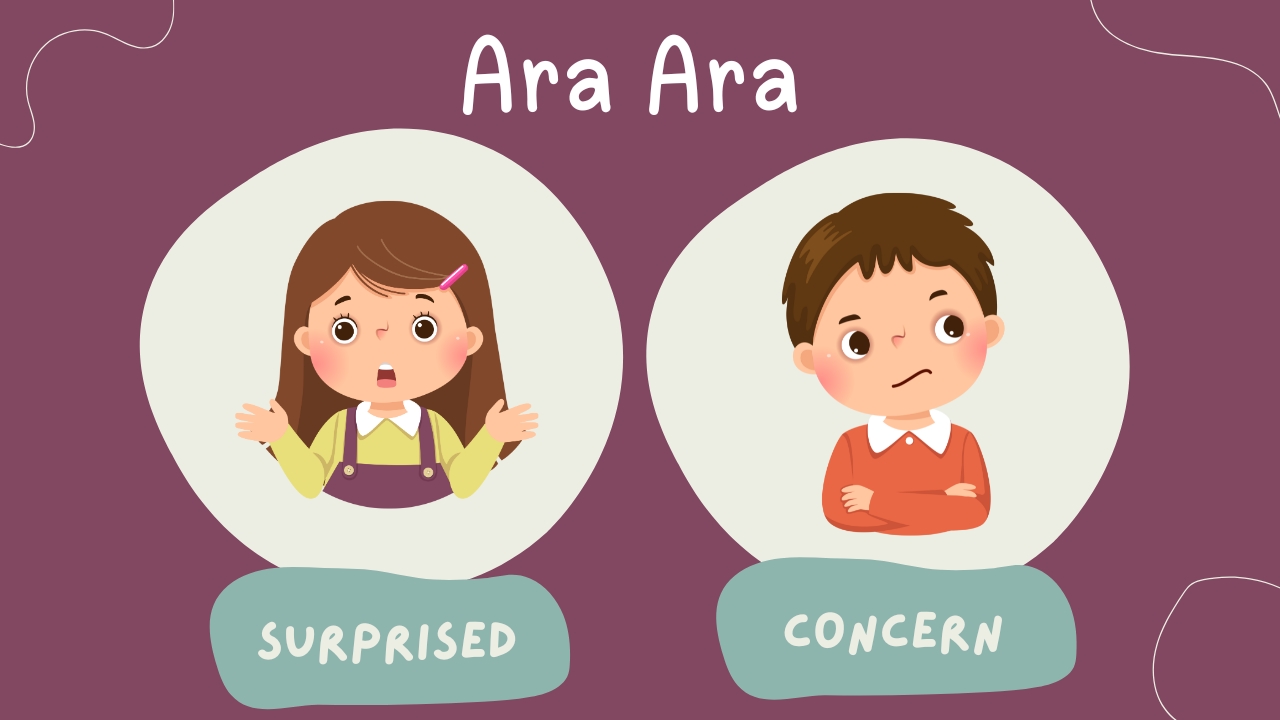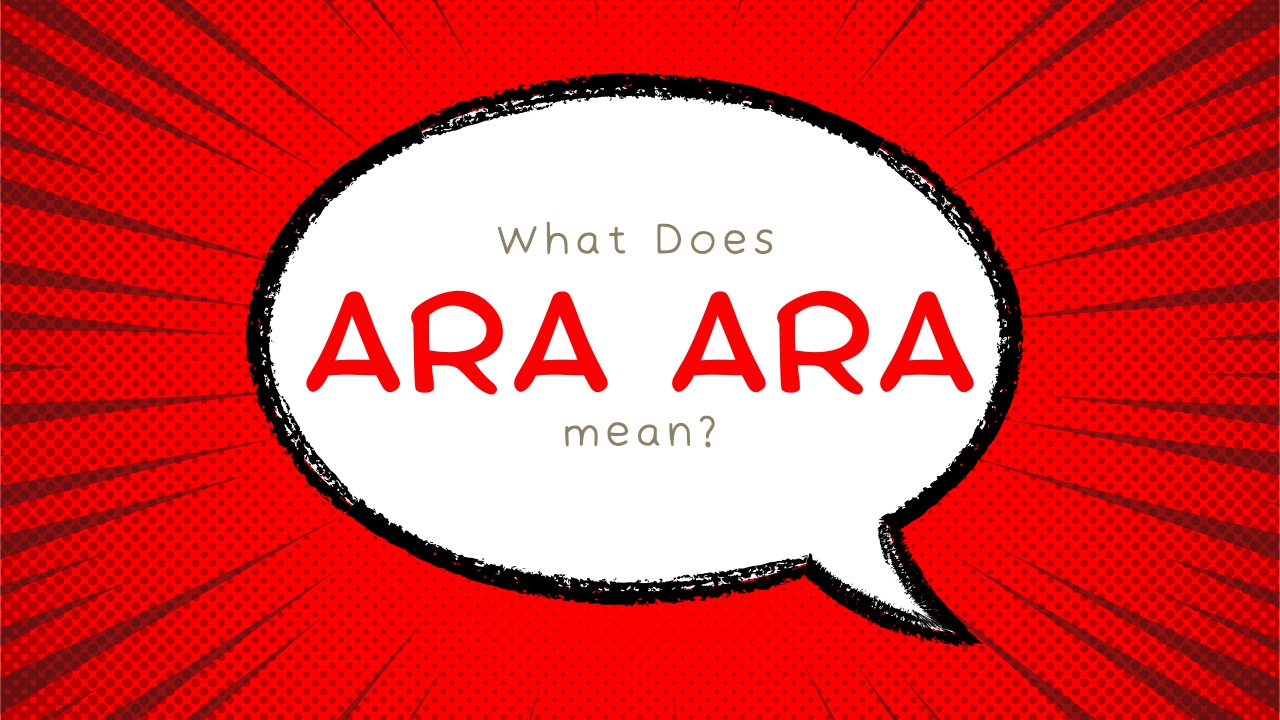The Japanese phrase “Ara Ara” has gained immense popularity, particularly among fans of anime and manga. Its charm lies in its subtlety, often leaving audiences curious about its true meaning. But what does this phrase actually signify, and why has it become such a significant cultural expression? This article explores the origins, uses, and cultural relevance helps you understand its deeper meaning.
The Literal Meaning of Ara Ara
In Japanese, “Ara Ara” (あらあら) is an expression that loosely translates to phrases like “Oh my,” “Oh dear,” or “Well, well.” It is an exclamation used to convey mild surprise, concern, or amusement. While it may sound simple, its context determines the depth of its meaning.
Continue Reading to Explore About MangoAi. com
Unlike many direct translations, the phrase carries a uniquely nuanced tone. It reflects a mixture of politeness, empathy, and charm, depending on how and by whom it is used. The phrase is typically associated with a feminine, gentle, and often motherly character, which adds to its layered significance.

Origins of Ara Ara in Japanese Culture
“Ara Ara” has its roots in traditional Japanese speech patterns. The phrase has been part of the language for centuries, serving as a polite exclamation in both formal and informal contexts. It reflects the cultural value of subtlety in Japanese communication.
In modern pop culture, the phrase is commonly heard in anime and manga. The phrase is often used by mature female characters who exude grace, warmth, or sometimes playful teasing. This association has cemented the phrase as a beloved trope in storytelling, especially in genres that focus on relationships and character dynamics.
You May Like: USAenLinea .com
Uses in Everyday Life
In everyday Japanese conversations, this phrase is used sparingly and often to express gentle surprise. For instance:
- A mother noticing her child’s messy room might say the phrase to softly scold them.
- A friend discovering unexpected good news might exclaim “Ara Ara” in delight.
Unlike in anime, where the phrase can carry exaggerated connotations, its real-life usage tends to be understated and polite. It conveys emotions without being overly dramatic, making it a versatile expression.
| Context | Meaning of Ara Ara |
|---|---|
| Mild Concern | “Oh dear, is everything okay?” |
| Amusement | “Well, well, isn’t this interesting?” |
| Gentle Surprise | “Oh my, what a pleasant discovery!” |
| Playful Scolding | “Oh dear, what have you done this time?” |
Ara Ara in Anime and Pop Culture
The phrase has transcended its everyday use, becoming a staple in anime and manga. It is frequently delivered in a soft, playful tone by female characters who embody elegance or maturity. These characters might use the phrase to:
- React to a humorous situation.
- Playfully tease another character.
- Express mild concern in a motherly manner.
For example, a character like a loving older sister or a gentle teacher might say this phrase when a younger character does something silly or endearing. This use of the phrase adds layers to the character’s personality, making them appear warm and approachable.
Fans of anime often associate the phrase with a specific type of character archetype—those who are calm, collected, and subtly flirtatious. This has contributed to its widespread recognition even outside Japan.
Why this Phrase Resonates with Audiences
This phrase holds a special place in people’s hearts because it embodies a universal emotion—the ability to react kindly and warmly in surprising or amusing situations. It reflects a tone of gentle empathy that is often missing in more direct expressions.
Continue Reading if you are a travel enthusiast.
In pop culture, the phrase is used to create memorable moments. Anime fans often mimic this phrase for its iconic delivery and playful tone, which has made it a meme-worthy phrase on social media. The gentle teasing and elegance associated with this phrase makes it a versatile expression, adding humor and charm to any scenario.
Practical Uses of the Phrase
If you’re learning Japanese or simply want to incorporate this phrase into your vocabulary, it’s essential to understand its context. Here are some examples:
- Mild Concern: Use “Ara Ara” when someone makes a small mistake, such as spilling a drink. It’s a polite way to acknowledge the mishap.
- Amusement: React to a funny story or event with this phrase to convey lighthearted amusement.
- Playfulness: Use the phrase in a teasing tone to gently scold a friend or loved one.
Remember, tone is everything when using “Ara Ara.” The phrase is best delivered with warmth and subtlety, avoiding overly dramatic expressions.

Modern Interpretations of Ara Ara
In today’s digital age, “Ara Ara” has become more than just a Japanese phrase. It has been embraced by global audiences, particularly through memes and fan culture. Social media platforms often feature short clips of characters saying this phrase emphasizing its playful and flirtatious undertones.
The phrase has also sparked debates about cultural appropriation versus appreciation. While its popularity highlights the global appeal of Japanese language and culture, it’s essential to use the phrase respectfully and in the right context.
Click here to learn about: Amp Fitness
Conclusion
“Ara Ara” is more than just a phrase; it’s a cultural expression that reflects the nuances of Japanese communication. Whether used to convey surprise, amusement, or playful scolding, it carries a tone of warmth and empathy that resonates with people worldwide. Its association with elegant and mature female characters in anime has further popularized its use, making it a staple in modern pop culture.
If you’ve ever been curious about the phrase, now you know what makes the phrase so unique and endearing. Whether you’re watching anime, learning Japanese, or simply looking for a charming way to express yourself, this phrase is a delightful addition to any vocabulary. Embrace its subtle charm and discover why this two-word expression has captured the hearts of so many.



